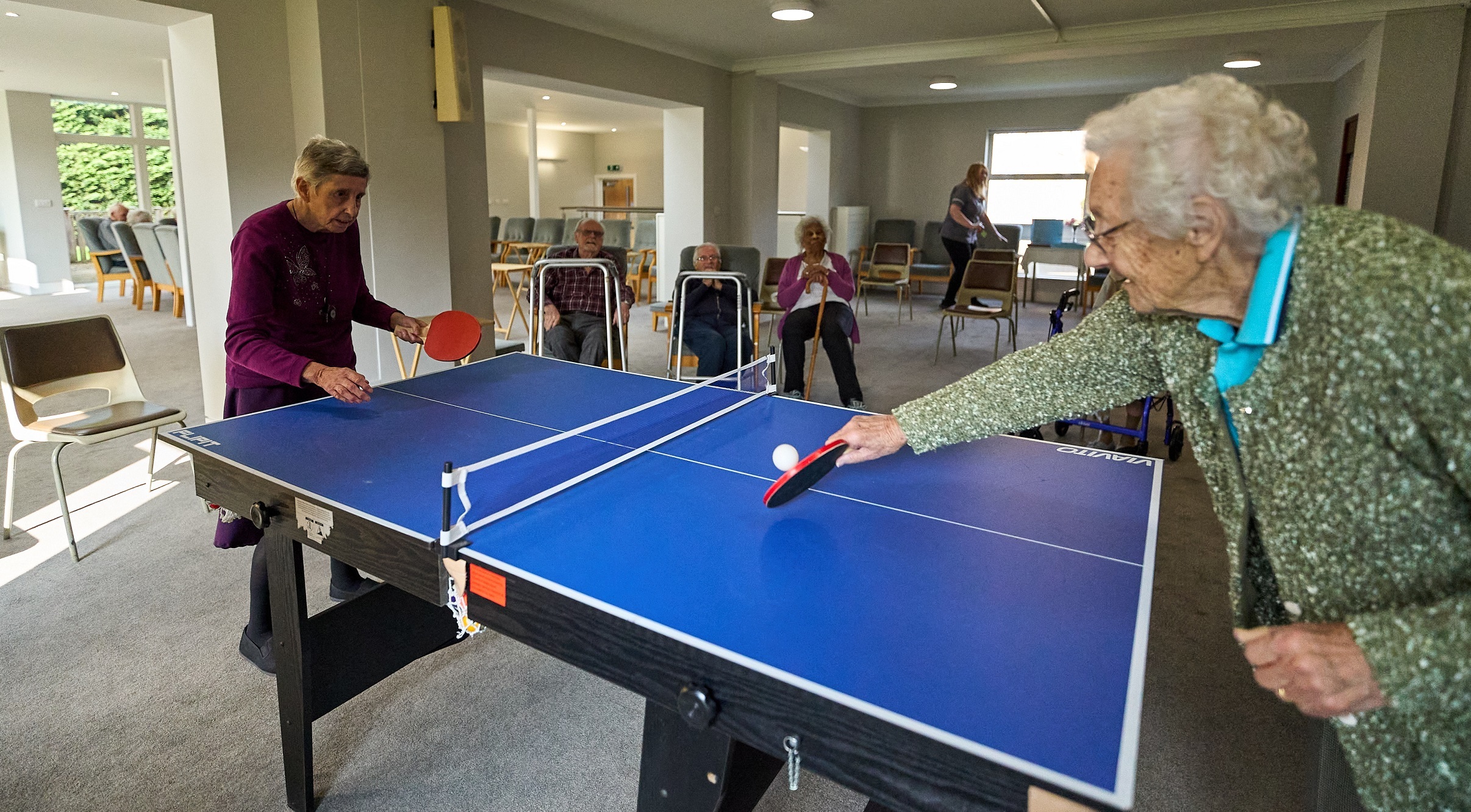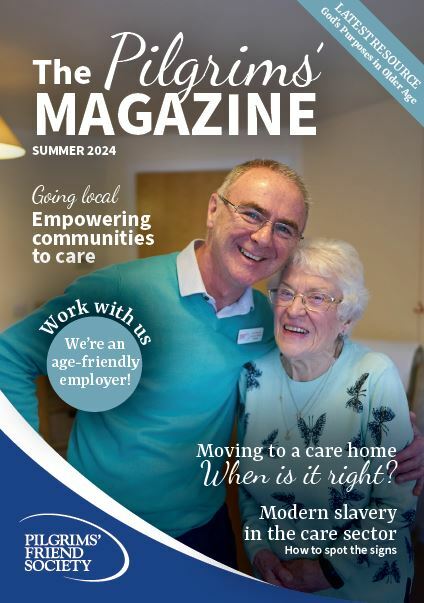
Thursday 30th May 2024
Empowering communities to care
Unlocking local resources to transform how society cares for an ageing population
The day we signed off this magazine turned out to be the day when Rishi Sunak surprised us all by calling a General Election, throwing some of our plans and thinking about “Empowering communities to care” up in the air. As you read on, keep the election in mind - your vote will impact who forms our next Government so please do find out which of your local candidates will stand up for social care by creating a statutory framework that is fit for purpose and empowers communities to care.
“Social care is everybody’s business”. So stated the Archbishop of Canterbury’s Reimagining Care Commission (RCC) which reported its findings in January 2023. Faced with an ageing population and limited resources for social care, the RCC found that the work of social care cannot be restricted to statutory provision by Government but needs to be owned and embraced by all of us.
So, while you and I were enjoying our Christmas break, Stephen Hammersley was reimagining care as a world in which local resources – you, me, our churches, our charities – are unlocked and connected to statutory provision to create a world in which social care can really deliver for those who need it. The result is a document called “Empowering communities to care” which outlines four key themes:

• Championing and valuing volunteers as key stakeholders in social care
• Encouraging the private and charity sector to go the extra mile in the community
• Integrating delivery driven by community
• Endowing legitimacy on community entrepreneurs
The social care landscape
As a provider of communities for older people through our care homes and housing schemes, Pilgrims’ Friend Society is at the front line of social care – ensuring that vulnerable people, in our case older people, are treated with the respect and value that we believe all have as image-bearers of the Living God. We know how much it costs to provide not just a bed, some food and heating for older people, but a home and a full life. We know that cost is significant to anyone who lives with us, and that the government isn’t investing the money needed to make sure that vulnerable older people get the care they need.
And we know that this challenge isn’t going away. There are over 11 million people in the UK who are 65 years old and above, and in 10 years’ time this number will have reached 13 million – that’s 22% of the population; we know that today already more than 1.4 million people are not getting the help they need.
And we know that government after government hasn’t fully grappled with this challenge. While some effort has been made to tackle the issue – the Shaping the Future ofCare Together Green Paper in 2009, the Dilnot Commission in 2011, a cap on care charges in the Conservative Party manifesto in 2015, and the proposed changes to the social care means test and cap announced in 2021, no real solution has been found for the increasing challenges of funding social care. We long for a positive vision which sets out a future where older people are viewed as vital and precious parts of our social make-up who deserve excellent care until the very end of life.
In a Christian context this perhaps matters even more given how Scripture says that older people should be valued, burdens should be shared and carried, and the vulnerable protected. All of this is significant as we at Pilgrims’ Friend Society renew our commitment to providing great Christian care for older people around the UK, including through the provision of new homes where possible. Despite the rather grey landscape, we are convinced of our mandate to ensure that as many older people as possible can live in glorious technicolour – whether that’s in our homes and schemes or in those provided by the many other excellent providers of care and community.
So, it’s in our interest – and yours, as our dedicated and faithful supporters – to do what we can to influence the policy arena and to create a platform which we hope will help shape the thinking of policymakers and decision-makers, especially as the new Government takes shape this summer.
To receive your copy of the magazine FREE four times a year, sign up now.
Empowering communities
The main contention of “Empowering communities” is that the cumulative impact of micro-assets within communities such as people, informal associations, local organisations, physical spaces i.e., churches and care homes, and networks needs to be unlocked to benefit older people. These community assets naturally enable relationships to develop that reach vulnerable people and join up care – helping people become less isolated, make appointments, and find the services they need. These relationships are good for older people and help the NHS and the Department of Health and Social Care work better and more cost effectively. When placed alongside statutory provision that is properly funded this can transform the outlook for older people as many more will be able to live well at home and, when needed, in a care home. If churches and Christians are involved many more will also hear the gospel
and see God’s love in action.
The Faith in Later Life Champion at Enfield Town Church has embedded care for the 100 older people within church life through visiting, a weekly group, and other church groups. If this kind of outreach were replicated across the 40,000 churches in the UK, four million older people could be reached. This championing of volunteers as key stakeholders in social care could
drastically improve the well-being and support of over a third of those over the age of 65.
Our own Middlefields House has been able to create a community hub as part of the life of the home due to the Harvest coffee shop and through recruitment of more than 40 volunteers. With 17,000 care homes in the UK, the impact of the private and charity sectors going the extra mile in the community could create 650,000 volunteer opportunities in local hubs.
The Christian befriending service, Silver Cord, provides vital support for anyone experiencing isolation or loneliness and connects with the local authority and blue light organisations. The London School of Economics has calculated the social returns on investment of up to £24 for every pound invested in befriending schemes so services like Silver Cord which integrate delivery could save the NHS up to £500m per year. The Pear Tree Centre serves a population of 50,000 people in rural Norfolk and Suffolk to improve health and wellbeing, reduce social isolation, and improve access to facilities and services for older people. If we were to endow legitimacy on community entrepreneurs like this, support for 2.4 million people could be provided.
What you can do to help
Many of you reading this will be engaged in lots of outreaches and ministry that look a bit, or a lot, like those I’ve outlined. Thank you! Please be encouraged to keep going, knowing that you are not alone in your commitment to older people and that your work is making a powerful contribution to the lives of people around you.
If you’re interested in the themes we’ve outlined in “Empowering communities” do download a copy.
Most of all, we would value your prayers for this document. We have shared it with a number of partners and supporting organisations including Faith in Later Life, the Salvation Army and the UK Communities Foundation, and we are working hard to get it into the hands of those who can impact policy in this area.
As election fever gathers pace, please share this document with your local candidates, and ask them about social care and communities if you meet them on your doorstep or out and about, or raise the issue if you attend a local hustings event.

Please pray:
That the right people would read and respond to “Empowering communities to care”.
More on "Empowering communities" & social care...

Empowering Communities to Care
We believe that unlocking local resources is key to transforming how society cares for an ageing population

Blue, red or yellow?
With 2024 an election year, Alexandra Davis looks at what the three main UK-wide parties have to say about social care




































